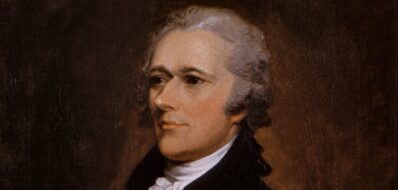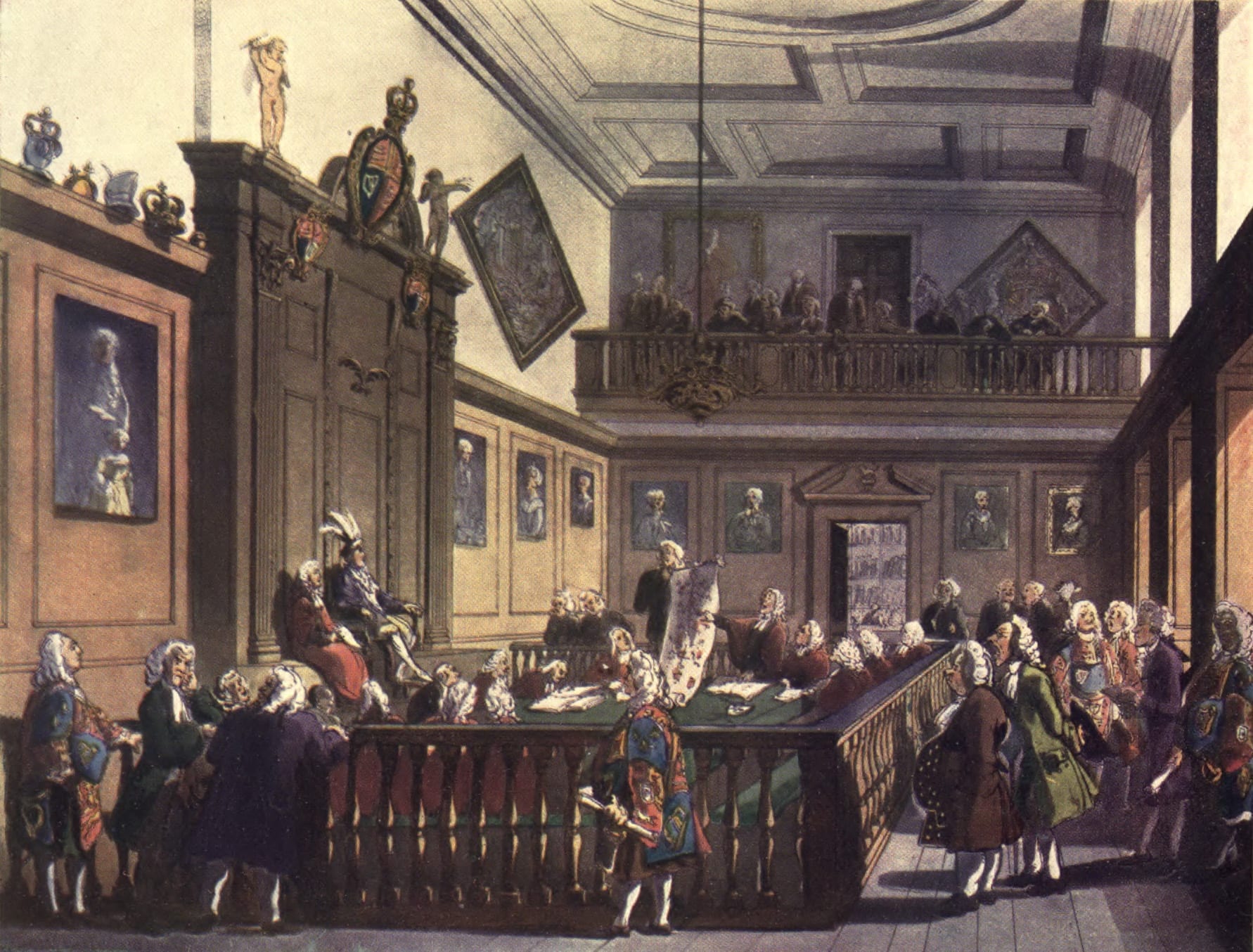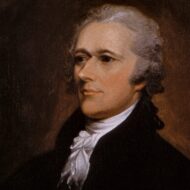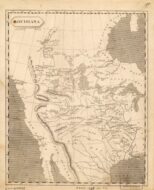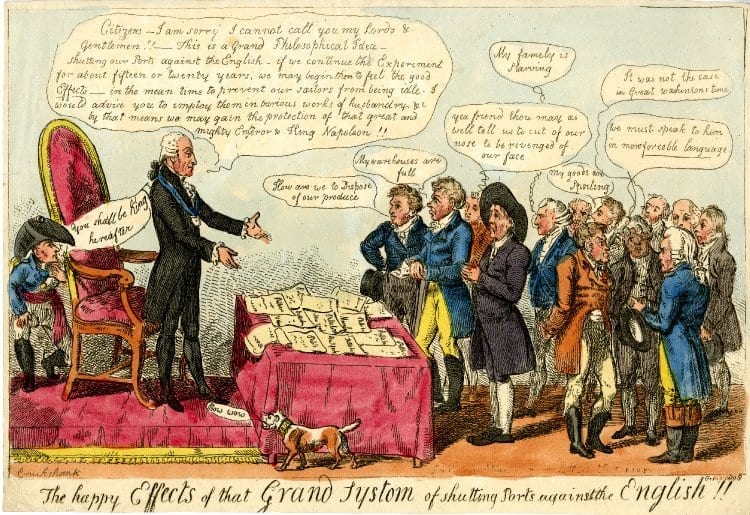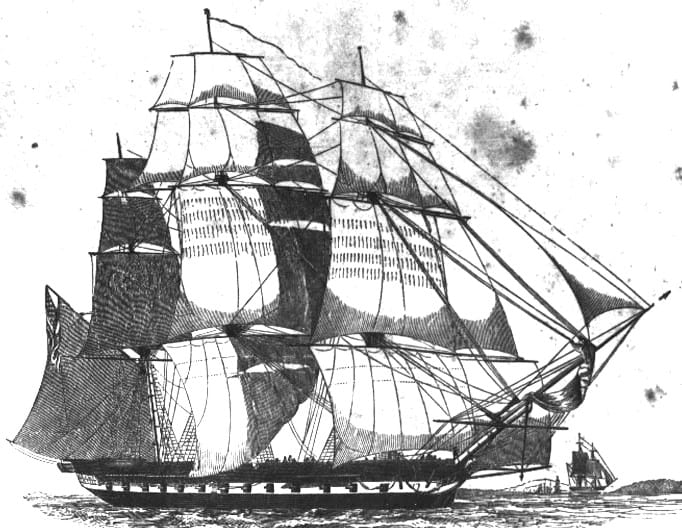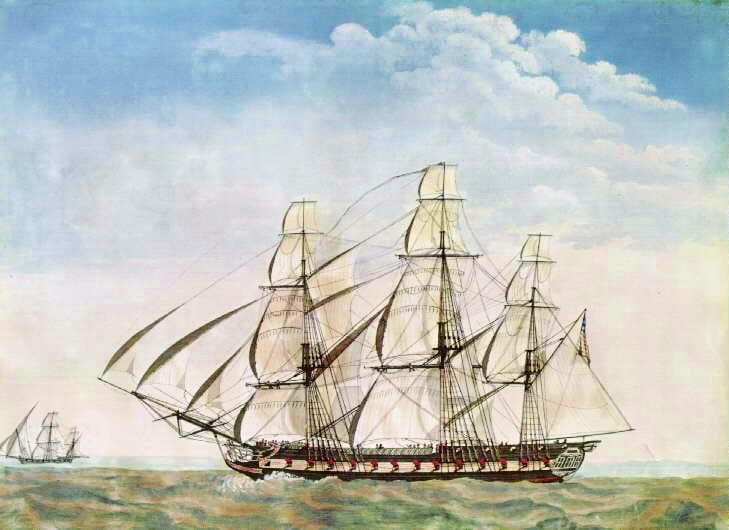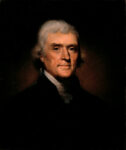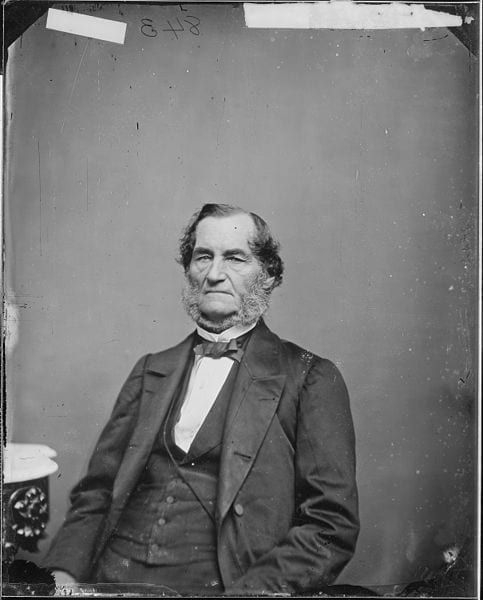

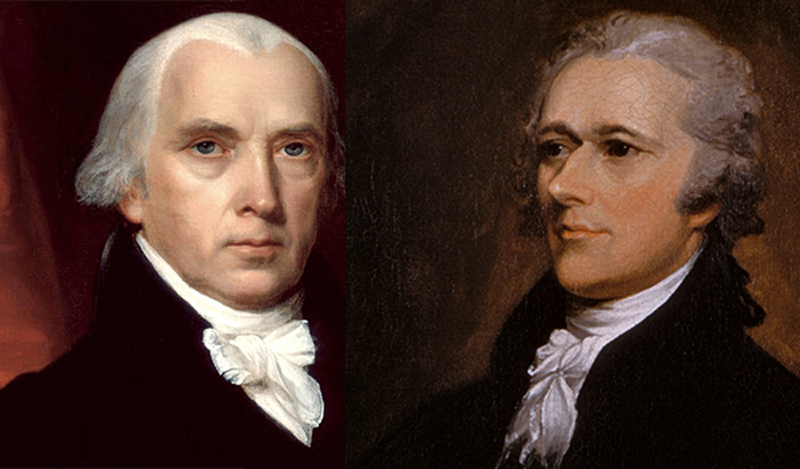
No related resources
Introduction
Although by 1793 America had already begun to develop a two-party system with the emergence of the Federalists and the Democratic-Republicans, the French Revolution polarized Americans and widened the political division. Specifically, Americans divided over the extent of American involvement in the war between France and Great Britain. Democratic-Republicans tended to align with France and view the French Revolution as similar to the American Revolution, while Federalists abhorred the excesses of the French Revolution and sympathized with the more moderate monarchy of Great Britain.
In spite of the existence of a treaty between the United States and France, which was decisive in the success of the American Revolution, President George Washington issued a “Proclamation of Neutrality” in April 1793 stating that the United States would not take sides in the conflict between France and Great Britain. Among other issues, this action raised the question of whether the executive branch had usurped the constitutional power of Congress to declare war. Writing as “Pacificus,” Alexander Hamilton (1755–1804), the first secretary of the Treasury, defended the Proclamation, while James Madison (1751–1836), writing as “Helvidius,” attacked it. The famous debates raised issues about which branch of government should lead in foreign affairs.
Alexander Hamilton and James Madison, Pacificus-Helvidius Debates (June 1793– October 1793), Founders Online, https://founders.archives.gov/?q=Pacificus&s=1111311111&sa=&r=7&sr=; https://founders.archives.gov/?q=Helvidius&s=1111311111&sa=&r=9&sr=; https://founders.archives.gov/documents/Madison/01-15-02-0070.
Pacificus I | Alexander Hamilton | June 29, 1793
As attempts are making very dangerous to the peace, and it is to be feared not very friendly to the Constitution of the United States—it becomes the duty of those who wish well to both to endeavor to prevent their success.
The objections which have been raised against the Proclamation of Neutrality lately issued by the president have been urged in a spirit of acrimony and invective which demonstrates that more was in view than merely a free discussion of an important public measure. . . .
The objections in question fall under three heads—
- That the Proclamation was without authority
- That it was contrary to our treaties with France
- That it was contrary to the gratitude which is due from this to that country for the succors rendered us in our own Revolution.
- That it was out of time & unnecessary.
In order to judge of the solidity of the first of these objection[s], it is necessary to examine what is the nature and design of a proclamation of neutrality.
The true nature and design of such an act is—to make known to the powers at war and to the citizens of the country whose government does the act that such country is in the condition of a nation at peace with the belligerent parties, and under no obligations of treaty, to become an associate in the war with either of them; that this being its situation its intention is to observe a conduct conformable with it and to perform towards each the duties of neutrality; and as a consequence of this state of things, to give warning to all within its jurisdiction to abstain from acts that shall contravene those duties, under the penalties which the laws of the land (of which the law of nations is a part) annexes to acts of contravention.
This, and no more, is conceived to be the true import of a Proclamation of Neutrality.
It does not imply that the nation which makes the declaration will forbear to perform to any of the warring powers any stipulations in treaties which can be performed without rendering it an associate or party in the war. . . .
If this be a just view of the true force and import of the Proclamation, it will remain to see whether the president in issuing it acted within his proper sphere, or stepped beyond the bounds of his constitutional authority and duty.
It will not be disputed that the management of the affairs of this country with foreign nations is confided to the government of the United States. . . .
The inquiry then is—what department of the government of the United States is the proper one to make a declaration of neutrality in the cases in which the engagements of the nation permit and its interests require such a declaration.
A correct and well-informed mind will discern at once that it can belong neither to the legislative nor judicial department and of course must belong to the executive.
The legislative department is not the organ of intercourse between the United States and foreign nations. It is charged neither with making nor interpreting treaties. It is therefore not naturally that organ of the government which is to pronounce the existing condition of the nation with regard to foreign powers, or to admonish the citizens of their obligations and duties as founded upon that condition of things. Still less is it charged with enforcing the execution and observance of these obligations and those duties.
It is equally obvious that the act in question is foreign to the judiciary department of the government. The province of that department is to decide litigations in particular cases. It is indeed charged with the interpretation of treaties; but it exercises this function only in the litigated cases; that is where contending parties bring before it a specific controversy. It has no concern with pronouncing upon the external political relations of treaties between government and government. This position is too plain to need being insisted upon.
It must then of necessity belong to the executive department to exercise the function in question—when a proper case for the exercise of it occurs.
It appears to be connected with that department in various capacities, as the organ of intercourse between the nation and foreign nations—as the interpreter of the national treaties in those cases in which the judiciary is not competent, that is in the cases between government and government—as that power which is charged with the execution of the laws, of which treaties form a part—as that power which is charged with the command and application of the public force.
This view of the subject is so natural and obvious—so analogous to general theory and practice—that no doubt can be entertained of its justness, unless such doubt can be deduced from particular provisions of the Constitution of the United States.
Let us see then if cause for such doubt is to be found in that Constitution.
The second Article of the Constitution of the United States, section 1, establishes this general proposition, that “The executive power shall be vested in a president of the United States of America.”. . .
The general doctrine then of our Constitution is that the executive power of the nation is vested in the president; subject only to the exceptions and qualifications which are expressed in the instrument. . . .
And since upon general principles for reasons already given, the issuing of a proclamation of neutrality is merely an executive act; since also the general executive power of the Union is vested in the president, the conclusion is that the step which has been taken by him is liable to no just exception on the score of authority.
It may be observed that this inference would be just if the power of declaring war had not been vested in the legislature, but that this power naturally includes the right of judging whether the nation is under obligations to make war or not.
The answer to this is that however true it may be that the right of the legislature to declare war includes the right of judging whether the nation be under obligations to make war or not—it will not follow that the executive is in any case excluded from a similar right of judgment in the execution of its own functions.
If the legislature have a right to make war on the one hand—it is on the other the duty of the executive to preserve peace till war is declared; and in fulfilling that duty, it must necessarily possess a right of judging what is the nature of the obligations which the treaties of the country impose on the government; and when in pursuance of this right it has concluded that there is nothing in them inconsistent with a state of neutrality, it becomes both its province and its duty to enforce the laws incident to that state of the nation. The executive is charged with the execution of all laws, the laws of nations as well as the municipal law,1 which recognizes and adopts those laws. It is consequently bound, by faithfully executing the laws of neutrality when that is the state of the nation, to avoid giving a cause of war to foreign powers.
This is the direct and proper end of the proclamation of neutrality. It declares to the United States their situation with regard to the powers at war and makes known to the community that the laws incident to that situation will be enforced. In doing this, it conforms to an established usage of nations, the operation of which as before remarked is to obviate a responsibility on the part of the whole society, for secret and unknown violations of the rights of any of the warring parties by its citizens. . . .
The right of the executive to receive ambassadors and other public ministers may serve to illustrate the relative duties of the executive and legislative departments. This right includes that of judging, in the case of a revolution of government in a foreign country, whether the new rulers are competent organs of the national will and ought to be recognized or not; and where a treaty antecedently exists between the United States and such nation that right involves the power of giving operation or not to such treaty. For until the new government is acknowledged, the treaties between the nations, as far at least as regards public rights, are of course suspended.
This power of determining virtually in the case supposed upon the operation of national treaties as a consequence of the power to receive ambassadors and other public ministers, is an important instance of the right of the executive to decide the obligations of the nation with regard to foreign nations. To apply it to the case of France, if there had been a treaty of alliance offensive and defensive between the United States and that country, the unqualified acknowledgment of the new government would have put the United States in a condition to become an associate in the war in which France was engaged—and would have laid the legislature under an obligation, if required, and there was otherwise no valid excuse, of exercising its power of declaring war.
This serves as an example of the right of the executive, in certain cases, to determine the condition of the nation, though it may consequentially affect the proper or improper exercise of the power of the legislature to declare war. The executive indeed cannot control the exercise of that power—further than by the exercise of its general right of objecting to all acts of the legislature; liable to being overruled by two-thirds of both houses of Congress. The legislature is free to perform its own duties according to its own sense of them—though the executive in the exercise of its constitutional powers may establish an antecedent state of things which ought to weigh in the legislative decisions. From the division of the executive power there results, in reference to it, a concurrent authority, in the distributed cases. . . .
While therefore the legislature can alone declare war, can alone actually transfer the nation from a state of peace to a state of war—it belongs to the “executive power” to do whatever else the laws of nations cooperating with the treaties of the country enjoin, in the intercourse of the United States with foreign powers. . . .
The Proclamation has been represented as enacting some new law. This is a view of it entirely erroneous. It only proclaims a fact with regard to the existing state of the nation, informs the citizens of what the laws previously established require of them in that state, and warns them that these laws will be put in execution against the infractors2 of them.
Helvidius I | James Madison | August 24, 1793
Several pieces with the signature of Pacificus were lately published, which have been read with singular pleasure and applause by the foreigners and degenerate citizens among us, who hate our republican government and the French revolution; whilst the publication seems to have been too little regarded, or too much despised by the steady friends to both. . . .
The substance of the first piece, sifted from its inconsistencies and its vague expressions, may be thrown into the following propositions:
That the powers of declaring war and making treaties are, in their nature, executive powers.
That being particularly vested by the Constitution in other departments, they are to be considered as exceptions out of the general grant to the executive department.
That being, as exceptions, to be construed strictly, the powers not strictly within them remain with the executive. . . .
The basis of the reasoning is, we perceive, the extraordinary doctrine that the powers of making war and treaties are in their nature executive; and therefore comprehended in the general grant of executive power, where not specially and strictly excepted out of the grant. . . .
If we consult for a moment the nature and operation of the two powers to declare war and make treaties, it will be impossible not to see that they can never fall within a proper definition of executive powers. The natural province of the executive magistrate is to execute laws, as that of the legislature is to make laws. All his acts therefore, properly executive, must presuppose the existence of the laws to be executed. A treaty is not an execution of laws: it does not presuppose the existence of laws. It is, on the contrary, to have itself the force of a law, and to be carried into execution, like all other laws, by the executive magistrate. To say then that the power of making treaties, which are confessedly laws, belongs naturally to the department which is to execute laws is to say, that the executive department naturally includes a legislative power. In theory, this is an absurdity—in practice a tyranny.
The power to declare war is subject to similar reasoning. A declaration that there shall be war is not an execution of laws: it does not suppose preexisting laws to be executed: it is not in any respect an act merely executive. It is, on the contrary, one of the most deliberative acts that can be performed; and when performed, has the effect of repealing all the laws operating in a state of peace, so far as they are inconsistent with a state of war; and of enacting as a rule for the executive, a new code adapted to the relation between the society and its foreign enemy. In like manner a conclusion of peace annuls all the laws peculiar to a state of war, and revives the general laws incident to a state of peace.
These remarks will be strengthened by adding that treaties, particularly treaties of peace, have sometimes the effect of changing not only the external laws of the society, but operate also on the internal code, which is purely municipal, and to which the legislative authority of the country is of itself competent and complete.
From this view of the subject it must be evident that although the executive may be a convenient organ of preliminary communications with foreign governments on the subjects of treaty or war; and the proper agent for carrying into execution the final determinations of the competent authority; yet it can have no pretensions from the nature of the powers in question compared with the nature of the executive trust, to that essential agency which gives validity to such determinations. . . .
Helvidius IV | James Madison | September 14, 1793
. . . Every just view that can be taken of this subject admonishes the public of the necessity of a rigid adherence to the simple, the received, and the fundamental doctrine of the Constitution, that the power to declare war including the power of judging of the causes of war is fully and exclusively vested in the legislature: that the executive has no right, in any case to decide the question, whether there is or is not cause for declaring war; that the right of convening and informing Congress, whenever such a question seems to call for a decision, is all the right which the Constitution has deemed requisite or proper; and that for such more than for any other contingency, this right was specially given to the executive.
In no part of the Constitution is more wisdom to be found than in the clause which confides the question of war or peace to the legislature, and not to the executive department. Beside the objection to such a mixture of heterogeneous powers, the trust and the temptation would be too great for any one man; not such as nature may offer as the prodigy of many centuries, but such as may be expected in the ordinary successions of magistracy. War is in fact the true nurse of executive aggrandizement. In war a physical force is to be created, and it is the executive will which is to direct it. In war the public treasures are to be unlocked, and it is the executive hand which is to dispense them. In war the honors and emoluments of office are to be multiplied; and it is the executive patronage under which they are to be enjoyed. It is in war, finally, that laurels are to be gathered, and it is the executive brow they are to encircle. The strongest passions, and most dangerous weaknesses of the human breast; ambition, avarice, vanity, the honorable or venial love of fame, are all in conspiracy against the desire and duty of peace.
Hence it has grown into an axiom that the executive is the department of power most distinguished by its propensity to war: hence it is the practice of all states, in proportion as they are free, to disarm this propensity of its influence.
As the best praise then that can be pronounced on an executive magistrate is that he is the friend of peace; a praise that rises in its value, as there may be a known capacity to shine in war: so it must be one of the most sacred duties of a free people, to mark the first omen in the society, of principles that may stimulate the hopes of other magistrates of another propensity, to intrude into questions on which its gratification depends. If a free people be a wise people also, they will not forget that the danger of surprise can never be so great as when the advocates for the prerogative of war can sheathe it in a symbol of peace.
The Constitution has manifested a similar prudence in refusing to the executive the sole power of making peace. The trust in this instance also would be too great for the wisdom, and the temptations too strong for the virtue, of a single citizen. . . .
Pacificus No. 2
July 03, 1793
Conversation-based seminars for collegial PD, one-day and multi-day seminars, graduate credit seminars (MA degree), online and in-person.














